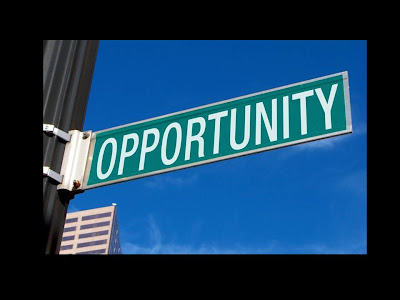I'll be giving a presentation at tomorrow's meeting of Chipmasters Toastmasters club. It's a special meeting for the club's 20th anniversary. Here are my slides and script:
How many of you, while you were growing up, ever thought that you were different? Maybe you didn’t fit in, maybe you felt awkward, or out of place. Anyone? Well, NOT ME!
I grew up in Cheshire, Connecticut, arguably one of the richest towns in the richest state in the richest country in the world. My father went to Yale and was an executive for a Fortune 500 company. My mother made my breakfast every morning before my older brother walked me to the bus stop.
My friends were all white and my idea of diversity was a kid with red hair. I thought I was pretty worldly because I ate chicken-fried rice and Taco Bell. To me, this was what it meant to live a diverse lifestyle. I loved diversity, I embraced diversity. In fact I took diversity to my senior prom!
In this case, “diversity” was Julie Meyer, the red-haired girl also on the previous slide. The problem wasn’t that my friends and I all looked the same. The problem was that we all thought the same. This started changing for me when I moved to Rochester, NY to attend RIT.
Some of my classmates were from “The City,” which, of course, meant New York City. To suggest that it could mean any other place was blasphemy. To me, Rochester was a pretty happen’ place, but to a real city kid it was about as exciting as watching grass grow.
My next big culture shock came when I moved to Virginia to work for the U.S. Navy as an intern. One of my roommates was a student at Virginia Tech. Chandler was VERY “country” and to him, I was the city kid. We got along fine, but we definitely had our differences.
My idea of a good time was going to the movies, maybe playing some video games at an arcade. His idea of a good time was “goin’ shootin’ with his pa.” The funny thing is that he was just as surprised that I’d never done that as I was that he does it all the time.
I completed my degree and moved to Arizona to work as a circuit design engineer. To me, the difference between the Northeast and the Southwest is like night and day, or, more literally, cold and hot. To many of my co-workers, though, it was more profound than that.
For a significant part of my early career, I was the only member of my team who had been born in the United States. This was a big change for me. In five short years, I went from being in the majority in every way to being in the minority in every way. I learned a lot, though.
From Lakshmi, I learned that being a vegetarian is as much a personal philosophy as it is a dietary restriction. To him, sacrificing a life, regardless of its form, for food is as distasteful as cannibalism is to me. From Lakshmi, I learned a whole new definition for “pro-life.”
From Neil, who is Palestinian, I learned that “terrorism” is very much a matter of perspective. Previously, it was easy for me to call what “they” do “terrorism” but what “we” do “fighting for freedom.” From Neil, I gained a whole new appreciation for semantics.
From Chengting, I learned that there is a big difference between a country’s government and its people. I observed this for myself when I visited China in 2001. From Chengting and during my visit, I experienced a whole new form capitalism.
Unfortunately, what usually passes for diversity these days is only that which can be photographed. Chandler and I looked pretty similar; Lakshmi and I look very different. The cultural difference between me and Chandler and me and Lakshmi, though, is just as profound.
True diversity, the kind that companies say they want in order to improve their ideas, is diversity of thought. Companies need people who think differently and have the ability to communicate that difference in a way that is meaningful to other people.
My focus won’t be on companies, though. I’ll leave that to HR departments, who often have to set hiring practices that are designed to right past wrongs and comply with federal guidelines. My focus is on the hidden benefits of diversity that we all too often miss.
Communication, which implies understanding, is the key. It’s not enough to surround yourself with people different from you. You must also take the time to communicate what’s different about you to others, and seek to learn what’s different about them.
In my six-plus years as a Toastmaster, I have been privileged enough to hear many Ice Breaker speeches. The Ice Breaker, for those of you who don’t know, is a Toastmaster’s first speech. A typical Ice Breaker is one in which the speakers answer the question, "What's your story?"
I’ve heard great stories of overcoming adversity, learning lessons the hard way, and the joys of being a parent. Many of the speeches made me laugh; a few made me cry. All of them, though, taught me something about someone else I may not have learned otherwise.
I appreciate the opportunity to speak to you today. Being a part of Toastmasters has given me many such opportunities. That’s not why I continue with Toastmasters, though. I’m still a Toastmaster because of the opportunities Toastmasters gives me to hear others.
The hidden benefits of diversity are not that diversity makes our ideas better; diversity makes our lives better. It’s very simple. Living and working in a diverse environment doesn’t just make us better thinkers, it makes us better people. Thank you!
I hope to post a video of the presentation eventually.
Thanks,
Matt





















No comments:
Post a Comment